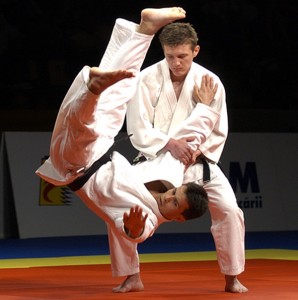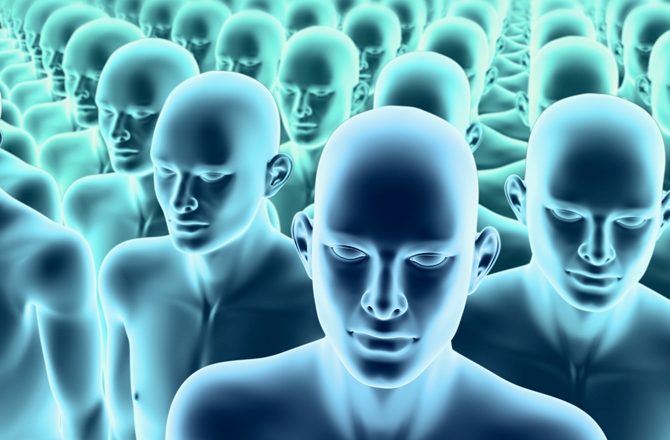Three decades ago, I reached the high water mark of my personal physical fitness. I ran thirty miles a week, performed three hundred pushups a day, and regularly boxed. (Ever since I’ve been on a downward slide, reaching new low water marks almost daily.)

While in that peak physical condition (never mind its short duration), I met a man with a black belt in Judo. He was twice my age, plump, and he wheezed when he walked. I was lifting bars with heavy weights; I think he was visiting bars with many beers.
He was the first black belt of any kind I had ever met. I was curious, and a bit skeptical. Could this chubby, middle-aged man really beat me in a friendly fight?
Alas. The glory of my youthful strength was unmatched by any glory of real-world wisdom. That fool inside me challenged him to hand-to-hand combat.
Never since childhood had I spent so much time on the ground. The lawn and I quickly became intimate friends. I huffed, puffed, wheezed, and groaned (and maybe cursed), as he effortlessly tossed me to the grass over and over again.
It didn’t matter what punch I threw. Every jab, hook, and uppercut resulted in me lying on my back, staring at the sky, gasping for air, and wondering what had happened.
How do they do that?
After my humiliating attempt to box a black belt, my pudgy pal explained how it works. The key, he said, is to use your opponents’ force against them, to redirect their strength (and balance and momentum) so they are working for you.
Whenever I tried to punch, my friend slipped aside and pulled. My own momentum—aided by his tiny tug—threw me off balance. He used my own strength against me. The stronger I attacked, the harder I fell.
God does the same thing. He didn’t create the evil in this world, but he redirects it through a spiritual kind of judo, so that it works against its architect.
As Joseph said to his brothers, “You meant it for evil, but God meant it for good.”
The Runt
Look at the life of David. The prophet Samuel comes to David’s father to anoint a king, but the youngest son David isn’t invited to the party. The prophet asks David’s father if anyone is missing, and David’s father responds, “Everyone is here but ‘the youngest.’”
But the word translated “the youngest” (hakaton) has multiple layers of meaning. It’s hard to translate because it combines the sense of youthfulness with an image of insignificance. To merely translate it as “the youngest” isn’t disparaging enough.
A better translation is to say, “Everyone is here but ‘the runt.’”
Think with me a moment. David was considered insignificant, so he was left in the fields where he practiced the slingshot to perfection. If the runt David had not been left in the fields—if he had trained like King Saul’s normal army—David would have cowered before Goliath like the rest of them.
God turned that wounding insult inside-out and upside-down. He used the wound to create a hero. David became King of Israel because of spiritual Judo.
Our lives depend on this spiritual truth: God is unsatisfied with merely neutralizing evil; God employs and redirects it to effect its own destruction. God is the ultimate Black Belt. Our hope for our deepest wounds is our Father’s spiritual redirection.
But what about…?
Some of our pains have been minor (like the humiliation of being tossed to the ground by a fat, old man); but some of us have been brutalized by monsters. I wish to be sensitive to these unspeakable horrors, and I don’t want to exaggerate minor wounds.
But the spiritual principle is the same. God refuses to let evil triumph, whether it be a minor wound or an unutterable brutality. We have real hope of God’s ultimate victory. The very thing that has debilitated us for years is often exactly what God uses to bring life.
God turns evil against itself. It never triumphs or has the last word. It self-destructs.
It’s a spiritual pattern
Look the life of Jesus. After his death, two despairing disciples describe recent events to a stranger, how their leaders took Jesus, “and crucified him, though we had hoped he was the one to redeem Israel” (Luke 24:20-21).
They had hoped Jesus would save Israel; instead he was murdered.
Look at the irony. God saved Israel because Jesus was killed, not just despite it. Even our salvation is created by spiritual judo. God rearranged the injustice in that murder, so that sin and death—through that crucifixion—brought about their own destruction.
God didn’t create the world’s injustice, but he gives it the job of destroying itself.
The Bible can seem bizarre
Why does Christ’s risen body have scars? God raises Jesus from death, gives him a new body; and that perfect body has everlasting, visible scars. Isn’t that weird?
Weirder yet, everywhere he goes, Jesus draws attention to those scars, “Put your finger here; place your hand in there; Look at this.” Why? This is God at his most mysterious.
The scars of Jesus commemorate God’s spiritual black belt. They remind us that God employs even the worst wounds of our lives. He redirects injustice, and brings about greatness. God takes the evil of Christ’s execution, and with a tug, creates redemption.
Paul writes, “We have seen that everything works out for the good for those who love God” (Rom. 8:28). Do we see the unimaginable good God brings from the scars of Jesus?
God does it with our scars too. Someday we’ll say, “Look at this; put your finger here.”
Sam



Leave a Reply